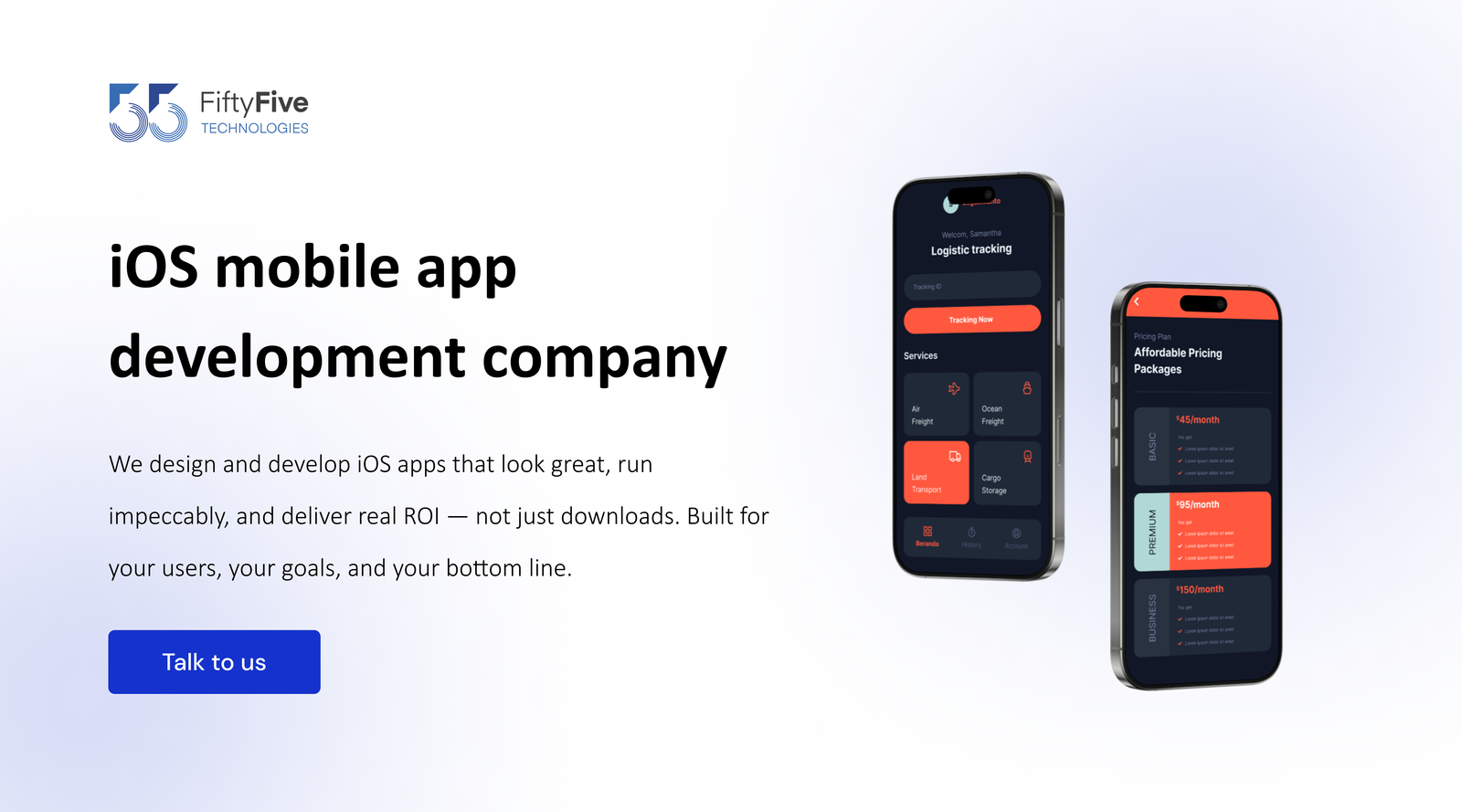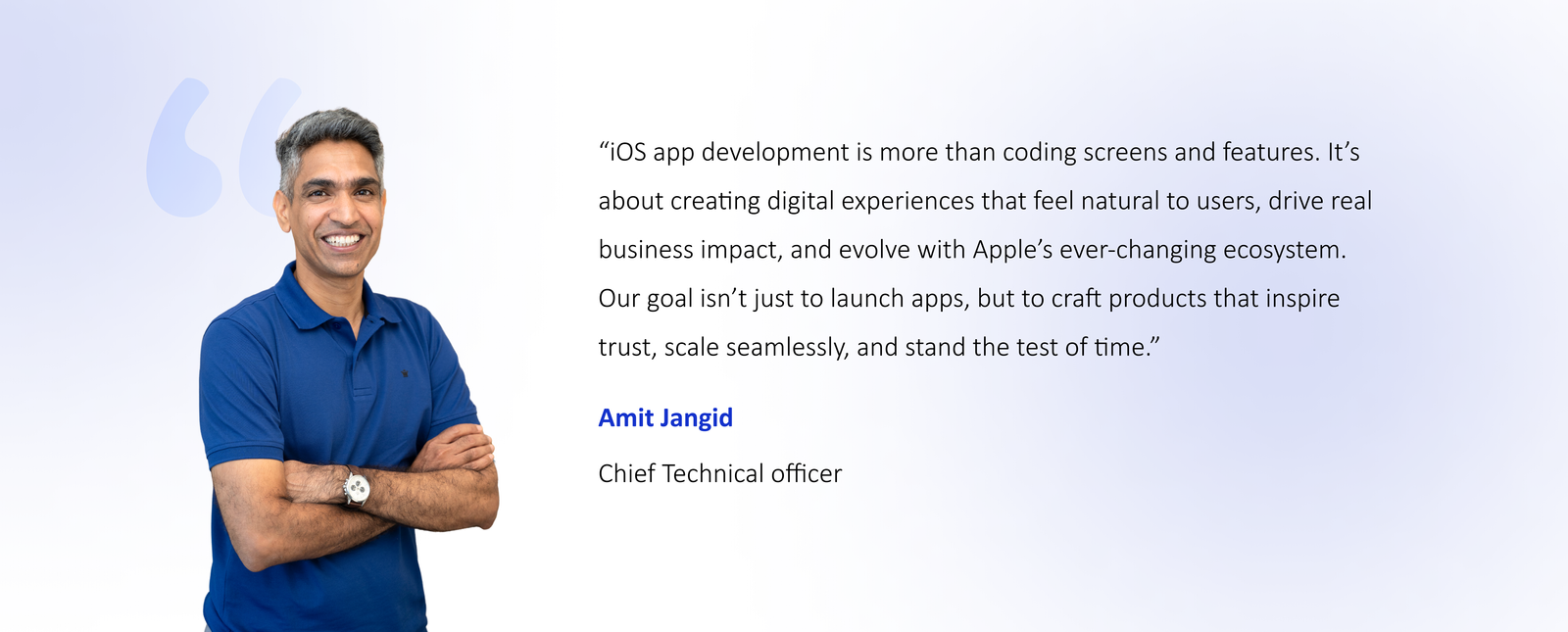- Home
- Custom iOS App Development
Custom iOS App Development

August 19, 2025 - Technology
In today’s digital economy, iOS mobile app development is no longer a luxury but a necessity for businesses across the US, UK, Europe, UAE, Nordics, and Australia. With Apple devices leading in security, design, and customer loyalty, organizations are investing in iOS apps to deliver seamless digital experiences and maintain a competitive edge.
This blog explores why iOS app development matters, the key benefits for global businesses, and how companies can leverage iOS technology to scale efficiently.
Why iOS App Development Matters for Global Businesses
Apple’s ecosystem has always prioritized user privacy, performance, and premium experiences. For companies targeting international markets like the UAE’s booming tech sector, Europe’s growing digital commerce, Australia’s startup ecosystem, and the Nordics’ innovation hubs, iOS apps offer unmatched scalability and reach.
The App Store connects businesses to millions of high-value users worldwide, making it a prime choice for brands that want to expand globally while delivering apps that align with Apple’s strict quality standards.

Benefits of iOS Mobile App Development
Enhanced Security
iOS is widely recognized for its robust security framework. From secure transactions to protecting sensitive customer data, iOS apps are ideal for industries like finance, healthcare, and eCommerce in the UK, US, and beyond.
Superior User Experience
Apple’s human interface guidelines and strict design principles ensure apps deliver a seamless, intuitive, and engaging user journey. This level of polish often drives stronger customer loyalty and brand trust.
Global Market Reach
From Dubai and Abu Dhabi to London, Sydney, and Stockholm, iOS apps help businesses connect with premium users worldwide. By investing in iOS development, companies position themselves in front of audiences with higher purchasing power.

Industries Leveraging iOS Development
iOS mobile app development is reshaping industries worldwide:
- eCommerce & Retail – Personalized shopping apps that boost customer engagement.
- Finance & Banking – Secure apps with seamless transactions and compliance.
- Healthcare – HIPAA-compliant apps for patient care and medical data.
- Education – Mobile learning platforms with AR/VR integration.
- Travel & Hospitality – User-friendly booking apps for global travelers.
Each industry benefits from iOS’s ability to combine security, performance, and user-first design.
Choosing the Right iOS Development Approach
Businesses today can choose between native iOS development (using Swift or Objective-C) for maximum performance or cross-platform solutions (like Flutter or React Native) to balance cost and speed. The choice depends on the project’s complexity, scalability goals, and target audience.
For startups in Australia and the Nordics, cross-platform development can accelerate time-to-market. Meanwhile, enterprises in the US, UAE, and Europe often prefer native iOS apps for greater control and long-term scalability.

The Future of iOS App Development
The future of iOS is deeply tied to emerging technologies. Artificial intelligence, machine learning, AR/VR, and IoT are increasingly being integrated into apps, offering businesses new opportunities for personalization, automation, and customer engagement.
In markets like the UAE and Europe, smart city initiatives and digital transformation projects are already driving demand for AI-powered and IoT-enabled iOS applications. Similarly, the US and UK are seeing a surge in healthcare and fintech apps powered by machine learning.
Final Thoughts
iOS mobile app development continues to empower businesses across the US, UK, UAE, Europe, Nordics, and Australia to innovate and scale. With its focus on security, performance, and design excellence, iOS remains the top choice for organizations aiming to deliver impactful, future-ready digital experiences.
By investing in scalable, user-centric iOS apps, companies can not only meet customer expectations but also position themselves as leaders in the fast-evolving digital economy.